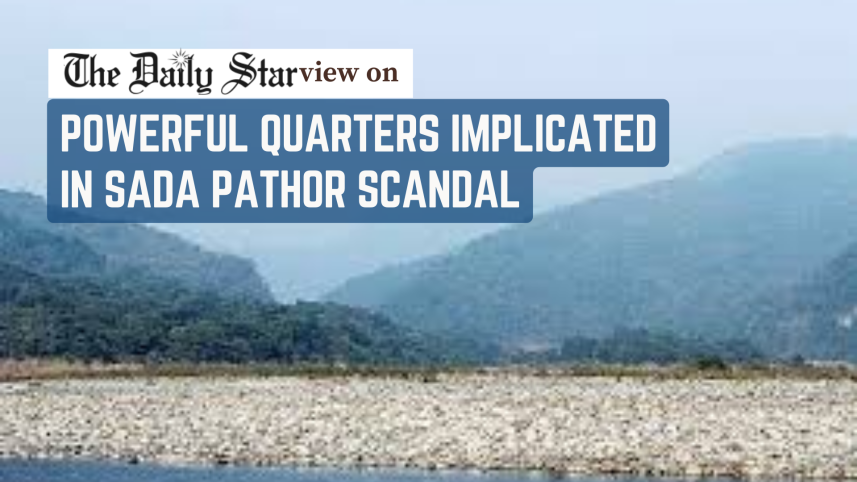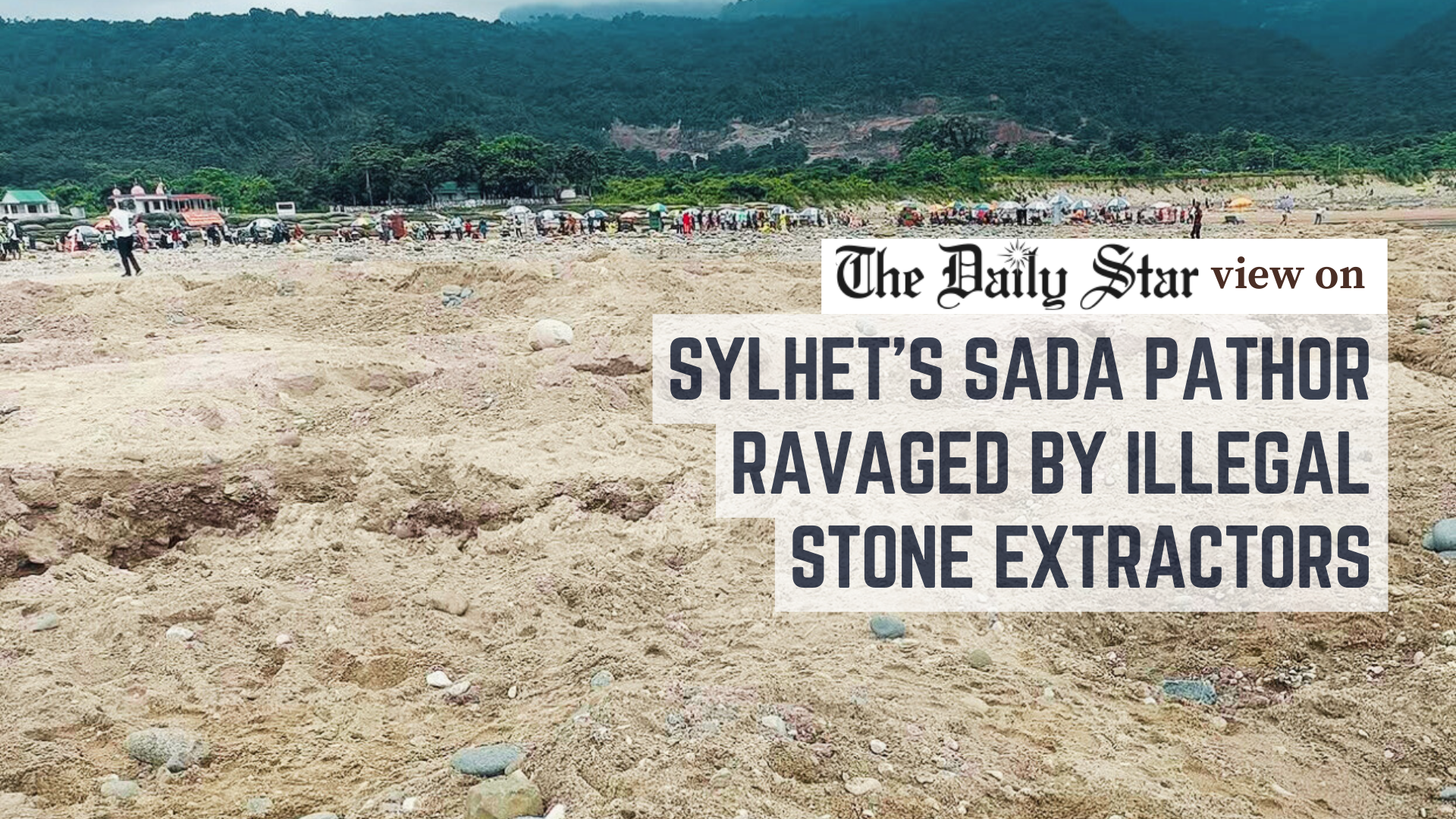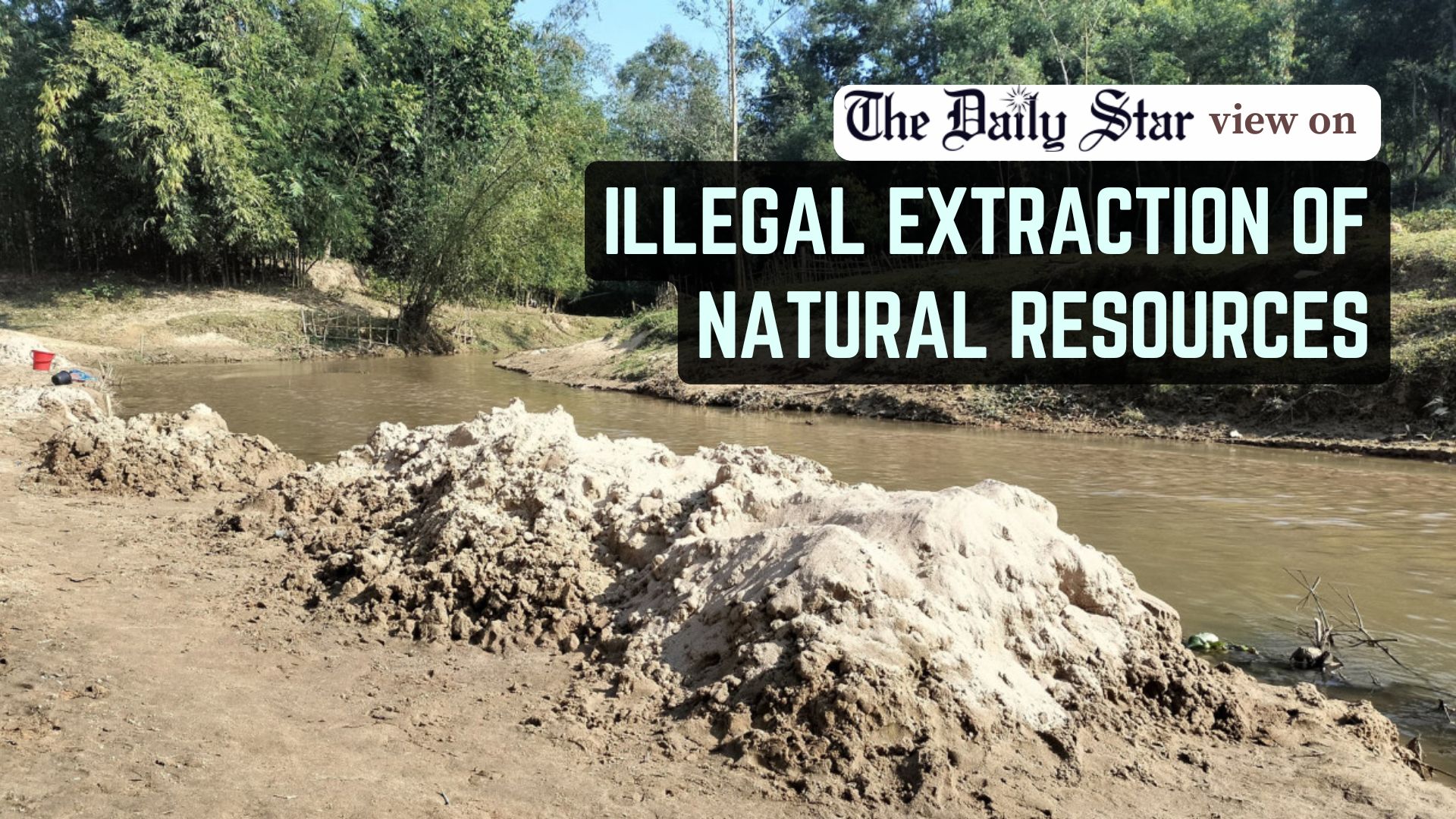Collusion fuelling Sada Pathor looting

It is quite disturbing, if not as surprising, to learn how the rampant looting of white stones from Bholaganj's Sada Pathor area has enjoyed broad support from influential quarters. As per a probe committee formed by the Sylhet district administration, some government officials, including members of law enforcement agencies, were involved in or beneficiaries of illegal extraction. A preliminary report by the Anti-Corruption Commission (ACC) was more damning, as it specified the Bureau of Mineral Development (BMD), the Sylhet administration, police, Bangladesh Border Guard (BGB), and 42 individuals with political and business links as being involved, either directly or indirectly.
Among the accused named are Sylhet's divisional commissioner, now-former deputy commissioner, superintendent of police, now-former UNO of Companiganj, etc. Besides administration and law enforcement officials, the names of leaders from across the political spectrum also came up in the ACC report, underscoring how high up the chain of authority this nexus of exploitation goes. While we acknowledge the flurry of interventions, including joint forces drives and administrative reshuffles that followed public outrage over Sada Pathor looting, doubts remain as to how effective these will be in the long run. The "all-party consensus" that seems to prevail over stone extraction—reflecting decades of elite capture and policy failures—cannot be undone by short-term measures alone. And how do you prevent a practice that syndicates have turned into an organised crime with mass participation?
This wide net of beneficiaries highlights just how entrenched the business of stone and sand extraction, not just around Sada Pathor but across Sylhet's tourist spots, has become. It is no longer just a case of a few unscrupulous traders, politicians, or local opportunists exploiting natural resources; rather, it has become a well-oiled system of plunder sustained by collusion among state officials and vested groups. That the very agencies tasked with protecting natural resources and ensuring law and order have been found complicit only shows the extent of this problem.
But now that the matter has come to light again, the authorities must ensure that ongoing efforts and investigations do not lose momentum or get buried under political pressure, as has so often been the case in similar scandals. Accountability must be established at every level, and those responsible, no matter how influential, must face justice. Besides joint drives to recover stolen stones, the district administration has reportedly taken the initiative of restoring them at Sada Pathor. Such efforts must persist as part of a broader strategy to prevent illegal extractions and other harmful activities that our natural commons are routinely subjected to in the country.



 For all latest news, follow The Daily Star's Google News channel.
For all latest news, follow The Daily Star's Google News channel. 

Comments